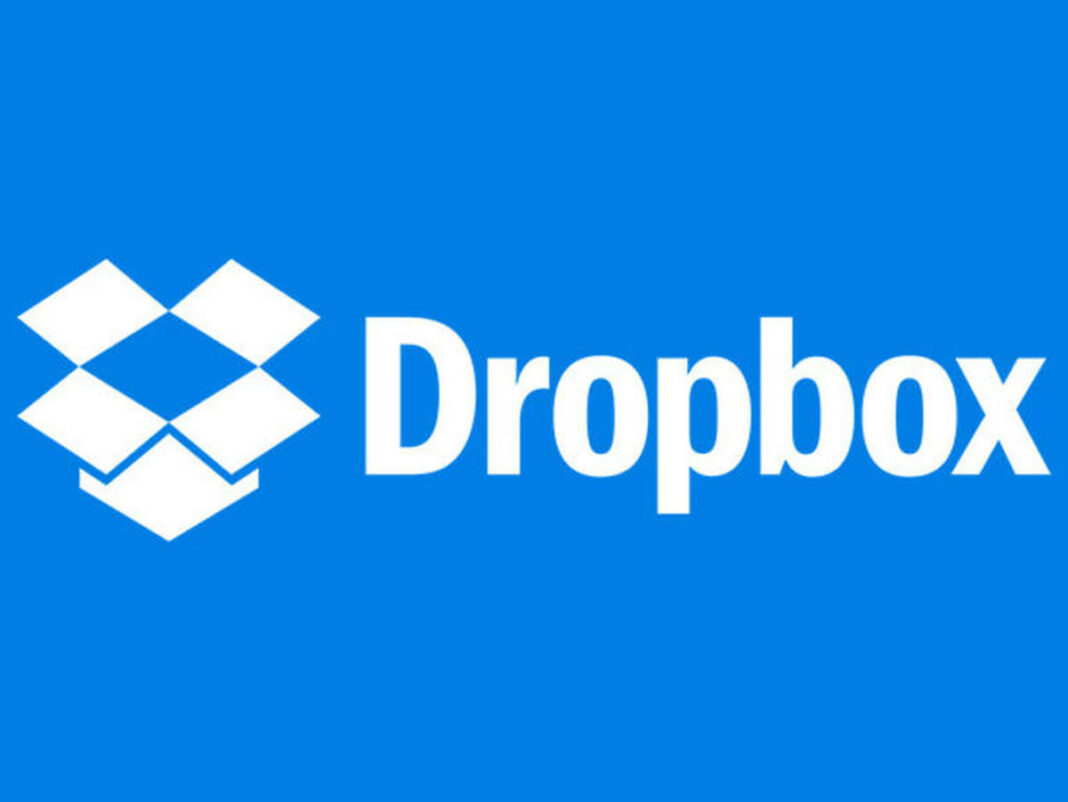Best Dropbox alternatives will be discussed in this article. You may keep your pictures, movies, and documents online with the help of Dropbox, a cloud storage service. For the first year, 2GB of storage space is provided without charge. Although Dropbox is really good, many of you may not be a good fit. There are more reliable, secure alternatives to Dropbox that provide a greater range of services.
With over 600 million users worldwide, Dropbox is without a doubt one of the most widely used cloud storage services at the moment. Dropbox enables users to send links to specific files or folders as well as share folders or individual files with other users.
Dropbox’s shared folder feature, which enables many users to work on the same document concurrently in real-time without worrying about who has changed it since they last looked at it, also makes it simple to collaborate on projects with coworkers or clients.
What is Dropbox?
Dropbox is a cloud-based file management tool that enables users to store all of their crucial files, documents, and photographs in one place and access them from any connected device. Dropbox is available for both personal and professional use. Even individuals without a Dropbox account can easily exchange and work together on files and other resources.
Dropbox offers a Free Essential plan with 2 GB of storage capacity for a single user. The Plus package has 2 TB of secured storage and costs $9.99 per user per month. The Family plan has 2 TB of secured storage and costs $16.99/month/6 people.
Top 15 Best Dropbox Alternatives You Should Know In 2022
Top 15 Best Dropbox Alternatives You Should Know are explained here.
1. pCloud
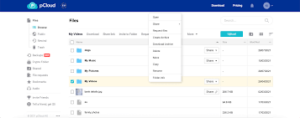
In its capacity as a Swiss company, pCloud offers Swiss data protection with client-side encryption and zero-knowledge privacy. The client-side encryption function protects your files from illegal access since it encrypts your data before it is uploaded from your machine to pCloud’s servers.
The zero-knowledge solitude feature, on the other hand, prevents the service provider from viewing your encryption keys because it only makes them available to you, the creator.
Android and iOS mobile apps and desktop apps are both available on pCloud (Windows, Linux, and Mac). Additionally, any of the most widely used web browsers can access the pCloud web platform. Also check Dry cleaning software
pCloud Pros and Cons
Pros:
- Basic A pCloud account comes with up to 10GB of free cloud storage.
- Stunning one-time payments for lifetime programmes
- Usability on various devices
Among the most cutting-edge security features available are TLS/SSL channel protection, 256-bit AES encryption for all data, and 5 copies of your files on different servers.
- There are numerous file-sharing options accessible.
Cons:
- PCloud Crypto incurs additional fees.
- Customer-side encryption
- Privacy with no knowledge
- several layers of defence
Plans for cloud pricing
The Free Forever plan comes with 10GB of storage capacity. For yearly memberships, the starting price for premium pCloud choices is $3.99 per month. In its Premium tiers, the cloud storage service offers 500GB of shared disc space and 500GB of data transfer bandwidth.
There are also Premium Plus packages with 2TB of cloud storage. Unlike the majority of other cloud storage providers, pCloud offers a lifetime service for just $175. You only require to pay once to get 500GB of storage, which you may use for the rest of your life.
2. Google Drive

The Google apps family includes a free cloud storage service called Google Drive. It allows you to jam all of your photographs and videos at a lower quality without depleting your free account storage, and it comes with 15GB of free storage space. This is another dropbox alternative.
Google Drive is one of the finest options for clients who just wish to backup their personal and professional information.
Pros and cons of Google Drive:
Pros:
- Encrypted and secure access is provided to your content.
- Your files are not used to customise ads.
- There is integration between Docs, Sheets, Slides, Microsoft Office, Slack, Salesforce, DocuSign, Autodesk, and other apps and technologies.
- It incorporates Google’s AI and search engine, which can speed up file discovery by up to 50%.
- Provides 15GB of free cloud storage
Cons:
- With any of the paid choices, storage is not unlimited.
No plans exist for limitless cloud storage.
Plans for Google Drive pricing
The no-cost plan includes 15GB of cloud storage. Furthermore, Google Drive does not deduct the storage consumption of a low-quality backup of a picture or video.
The least expensive option is the Essential plan, which costs $1.99 per month and offers 100GB of storage. The Standard plan has 200GB of cloud storage and costs $2.99 per month. Finally, the Premium plan offers 2TB of storage for $9.99 per month.
3. Internxt
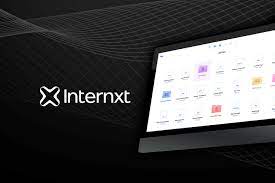
Internxt is an open-source cloud storage platform built on blockchain and is the greatest Dropbox alternative in terms of privacy and security. End-to-end encryption is used for all files exchanged or uploaded through the service to guarantee that user data is secure and unreadable by both first and third parties.
In terms of safety and ethics, Internxt more than makes up for Dropbox’s age disadvantage. The service prioritises users’ right to privacy by supporting zero-knowledge technology and adhering to a rigid user service model. Limits on file downloads, an easy backup setup, and complete user control over data access are all special features.
Drive, Photos, and Send are the three main privacy-focused features that come included with Internxt. Transferring (from Dropbox) is simple and painless because to the service’s quick upload and download rates, which are consistent with all devices and operating systems.
Pros and cons of Internxt:
Pros:
- Your information won’t be accessed by anybody else.
- Complete transparency and open-source
- End-to-end encryption is used for all data transferred, saved, and shared.
- The capacity to restrict the amount of times a file may be shared.
- Free, bundled access to Internxt Drive, Photos, and Send
- Free 10GB premium plan
Cons:
- Youthful service
- Not fully integrated with some third-party applications
Plans for Internxt pricing:
Pricing-wise, Internxt outperforms Dropbox, providing a comparable 2TB subscription for just $11.50/month in addition to a free 10GB plan. A 20GB subscription from Internxt costs $1.15 per month, and a 200GB plan costs $5.15 per month. All Internxt plans, including the free one, are fully functional and throttle-free! Plans for the year and businesses are also offered.
4. Box
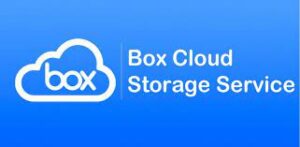
A cloud storage service for businesses and collaborative teams is another option to dropbox. It includes a digit of tools and features that can boost your productivity and improve the way you work with your employees, clients, partners, and vendors. Your job will be made simpler by it. This is another dropbox alternative.
Box Pros and Cons
Pros:
- End-to-end data protection, fine-grained user rights with seven sharing roles, two-factor (2FA) authentication for internal and external users, & multi-layered watermarking for data leak prevention.
- A single site for work assignment, file editing, review, and sharing
- More than 1500 business app connections are available (Microsoft Office 365, Google Workspace, Slack, Zoom, and many others)
- Workflow automation tools (pre-built departmental workflow templates, custom-configured templates, and an intuitive no-code workflow builder)
Cons:
- No permanent storage options
Box Pricing Schedules:
Box’s free individual plan comes with a 250MB file upload limit and up to 10GB of storage capacity. Only one premium plan, offering up to 100GB of cloud storage for $10 per month, is available to consumers.
5. NordLocker
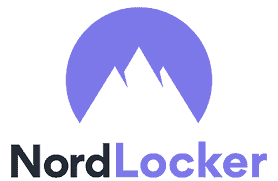
A secure cloud storage option called NordLocker is compatible with Windows, macOS, Android, and iOS gadgets. NordLocker was developed by Nord Security, the company responsible for NordVPN, NordPass, and NordLayer. Also check debt collection software
NordLocker employs cutting-edge encryption and a strong zero-knowledge policy. To ensure maximum data security, NordLocker uses the most powerful cyphers and encryption methods available.
Pros and cons of NordLocker:
Pros:
- 3GB of safe cloud storage are offered without charge to NordLocker subscribers.
- You can add files to both local & cloud lockers.
- Cloud-based content backup and seamless cross-platform syncing
- You can access your lockers to work on papers and open files (no decryption needed)
- A 30-day money-back guarantee
Cons:
- No plans exist for limitless cloud storage
NordLocker Price Structure:
The free plan includes 3GB of secure cloud storage capacity. 500GB and 2TB are the two premium choices offered by NordLocker.
For the first year, the 500GB plan costs $3.19 a month and offers priority service around-the-clock. You can get a $7.99 monthly subscription if you don’t want to commit for a full year.
For the first year of membership, the 2TB subscription costs $7.99 per month. There is also a monthly subscription option for $19.99.
6. OneDrive
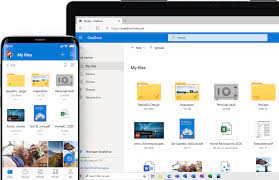
OneDrive from Microsoft is a user-friendly online storage option. 5GB of storage space are included in the basic package. The best thing about Microsoft OneDrive is that if you also utilize Microsoft Office, you can get 1TB of cloud repository and a free year of Microsoft Office (Outlook, Word, Excel, and PowerPoint for Windows and Mac) with the Microsoft 365 Personal plan, which costs just $69.99 annually. This is another dropbox alternative.
Pros and cons of OneDrive:
Pros:
- Free 5GB of cloud storage for files and images
- You have access to all of your images, documents, and files.
- Simple file sharing with loved ones and friends, as well as the capacity for real-time collaboration on Office documents and files.
- The option to automatically backup the photos on your phone.
- Modern syncing technology
Cons:
- File restoration, password-protected sharing links, and ransomware detection and recovery are not included in the free plan.
No plans exist for limitless cloud storage.
Plans for OneDrive pricing:
Microsoft OneDrive’s premium subscription levels begin at $1.99 per month. The most fundamental paid OneDrive subscription is OneDrive Standalone. It has 100GB of cloud storage and is intended for household use. There are two separate premium OneDrive home plans: Microsoft 365 Personal (1TB of cloud storage for $69.99/year; up to 1 user) and Microsoft 365 Family (6TB of cloud storage for $99.99/year; up to 6 users). They both provide a free membership to the Microsoft Office app.
7. Tresorit
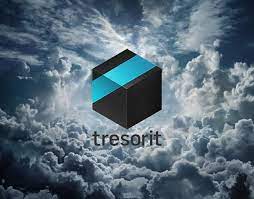
An “ultra-secure” online storage and sharing solution is what Tresorit bills itself as. Tresorit’s target audience is primarily businesses and collaborative teams, but it also has objectives for people. Its service is operated by SAP, Deutsche Telekom IT Solutions, D-Orbit, Erste Bank, & other well-known companies around the world.
Pros and cons of Tresorit:
Pros:
- End-to-end, zero-knowledge encryption for cloud storage
- Secure file sharing is offered by encrypted links both inside and outside of your business or group.
- Physical safety and round-the-clock observation
- Accessible across all web browsers & mobile devices
- The interface is user-friendly.
- Authentication using two elements (2FA)
- Available in a number of different languages
- Free 14-day trial
Cons:
- File restoration, password-protected sharing links, and ransomware detection and recovery are not included in the free plan.
No plans exist for limitless cloud storage.
Plans for Tresorit Pricing:
With Tresorit’s free subscription, users can transfer files up to 250MB in size and save 3GB of encrypted data in the cloud. Tresorit provides three business bundles and two standalone programmes.
8. Icedrive

In the year 2019, Icedrive was created. Despite being new to the market, Icedrive has already made a good impression. A few characteristics include the impenetrable Twofish encryption method, client-side encryption, zero-knowledge privacy, user-friendly interface design, and affordable pricing. This is another dropbox alternative.
One of Icedrive’s standout characteristics is the distinctive drive-mounting software. As a result, your cloud storage behaves like a physical hard drive without consuming any bandwidth or requiring synchronisation.
Pros and cons of Icedrive:
Pros:
- Free cloud storage is generously offered at 10GB.
- Client-side zero-knowledge encryption
- Cloud storage services that operate continuously need a lot of bandwidth.
- Access to shared files is controlled by passwords.
- Clear and user-friendly websites, desktop and laptop programmes, and mobile and tablet applications
Cons:
- Client-side encryption is not available on the free plan.
Icedrive Price Schedules:
Icedrive offers a large 10 GB free plan in addition to three premium options called Lite, Pro, and Pro+.
9. Sync
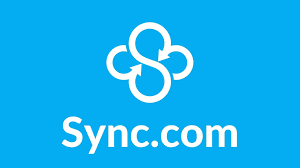
A Canadian company called Sync.com collaborates on cloud storage and aims to lower the cost of doing so. Its fundamental collaboration tools and 5GB of secure storage are included in the free plan. This is another dropbox alternative.
It offers free software that lets you sync and access your files from any device running Windows, macOS, iOS, Android, or the web. Additionally, you can disable the devices that are currently signed into your Sync account if they are lost or stolen by using the remote device lockout feature included with all Sync plans. Your security and privacy are greatly enhanced by this.
Pros and Cons of Sync
Pros:
- End-to-end encryption and a built-in SOC are included in every Sync plan (System and Organization Controls). Only a few of the features offered include Type 1 compliance, full share restrictions, file history and recovery, and real-time backup and synchronisation.
- There won’t be any outside tracking (you are the sole owner of your data)
You can distribute an infinite number of files and folders via secure connections.
- Offline accessibility and a 99.9% uptime warranty
Cons:
No plans exist for limitless cloud storage.
Pricing Plans for Sync:
The free plan from Sync.com provides 5GB of safe cloud storage but has a data transmission cap. The commercial services from Sync.com for teams start at $60 per user per year and include generous security and privacy features along with unlimited data transfer.
10. Mega

One of the most notable advantages of MEGA’s free plan is the high storage cap. One of the best free plans out there is this one. You get 50GB of storage for nothing, plus an extra 10GB for each invite. Given that the majority of these providers offer between 2 and 5GB of free data storage, this achievement is all the more remarkable.
The great level of security offered by this business is another wonderful aspect. Your encryption key must be made; it must remain a secret, even from MEGA employees. The data you’ve stored in the cloud is only accessible by you. The apps for this service are user-friendly and easy to use. This is another dropbox alternative.
Major Pros and Cons:
Pros:
- TLS GDPR compliant for all users worldwide, with end-to-end AES-128 security.
- Adopts a two-factor authentication system.
- Both free and paid plans are accessible.
- The United States does not include any data storage.
- There is an abundance of storage space.
- File versioning
- Annual transparency reports are released.
Cons:
- Is closed-source
- Difficult Free plan
- The options for collaboration are scarce.
- Neither live chat nor phone support are offered.
- No third-party testing or audits are provided to the general public.
Mega-Pricing plans:
Mega offers a complimentary subscription with 50GB of storage space, as was previously mentioned. You can upgrade to one of their paying plans if this is insufficient. You have a lot of options to pick from, which is fortunate. Their initial premium plan, called Pro-Lite, offers 200GB for $4.99 a month. Also check Telemedicine software
You can get up to 8TB of warehouse for $29.99 per month. Because it offers plenty of storage space, it is also a great option for small businesses. You do, however, have a monthly bandwidth cap that you cannot go over without paying an additional fee. The maximum bandwidth should be double-checked before you purchase one of their plans.
11. NextCloud
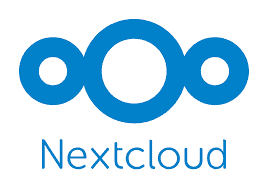
This is another dropbox alternative. With the help of the self-hosted productivity tool Nextcloud, users can collaborate on projects, communicate via email and video chat, manage their calendars, and more. Your data may be simply accessed, managed, shared, and synced on the server of your choice. Collaboration is possible with Nextcloud’s comprehensive on-premises solution without having to worry about security or compliance issues. One of the most outstanding Dropbox alternatives, its adaptability allows you total control over your data. Using Nextcloud, you can secure, oversee, and keep an eye on data and communication throughout your company.
Pros and cons of Nextcloud:
Pros:
- Versioning of files
- Software that is open-source and free
Streamlining file sharing
- Collaboration
- A GDPR-compliant cloud computing solution
- Integrated personal data management
Version tracking is a feature that is optional.
- One alternative is integration with third-party applications.
Cons:
- System probing by a third party
- At times awkward
- The web interface occasionally runs slowly.
Plans for Nextcloud pricing:
There is a free trial available. 100 users can purchase the Basic plan for €36 per user per year, the Standard plan for €65 per user per year, and the Premium plan for €95.50 per user per year.
12. MediaFire

Users of MediaFire can share documents, photographs, videos, and audio files while streamlining their workflow. You can rely on MediaFire for quick, secure file sharing and storage. The tool allows you to store all of your files easily and retrieve them from anywhere. It supports a wide range of formats. The programme also offers bulk uploads and downloads, and users can share data via links. Various operating systems, including Windows, macOS, iOS, and Android, support MediaFire. Storage for free users is 10 GB, and bonuses can increase that to 50 GB. In addition to being a tool for file sharing and storage, MediaFire also provides a number of useful features that provide users greater flexibility and convenience. This is another dropbox alternative.
Pros and Cons of MediaFire
Pros:
- Free 10 GB of storage
- Uploading very huge files is permitted
- Superb transfer rates
- Simplified interface
- Simple to use, even for non-technical staff
- Trustworthy and safe platform
- Model based on consumption that is economical
- Consistent virus scans
Cons:
- No encryption of files
- Fair customer service
- App regularly hangs
- A scant few integrations
Plans for MediaFire pricing:
The monthly cost for the Pro plan is $3.75 per user. The cost of the Business plan for 100 users is $40 per month.
13. Cloudup

A well-known Dropbox substitute for both consumers and organisations is Cloudup. For customers to keep their photographs, videos, and music, it provides free storage of up to 200 GB, which is more than enough. The tool’s hassle-free sharing feature makes it a real candidate to be taken into consideration when you’re seeking for an alternative to Dropbox, even though it isn’t as flexible and effective as some other file storing applications. You may securely and rapidly share anything with Cloudup without waiting for downloads or uploads to complete. Additionally, it provides all of that at no additional expense. Using secure URL URLs that can even be password-protected, Cloudup streams can be shared.
Pros & Cons of Cloudup
Pros:
- Ample free storage
- Quick sharing with links
- Password security
- File sharing and viewing across all platforms
- Straightforward drag-and-drop files
- Streamlining sharing and uploading instantly without extra fees
Cons:
- At times, speed can become sluggish.
- Potential for data theft
- A lack of sufficient user support
Cloudup’s pricing schemes
Free of charge with 200 GB of storage
14. Redbooth

This is another dropbox alternative. Another well-liked Dropbox alternative is Redbooth. This web-based solution assists teams in task and communication management, resulting in quicker and easier project completion. Redbooth, a project management tool used by industry titans like Coca-Cola and Starbucks, enables teams to manage multiple tasks at once, stay on track with ongoing projects, and launch new ones right away using pre-built templates. Through iOS and Android apps, project managers can stay in touch with their teams. The platform, which is based on the to-do list system, has sophisticated capabilities and is integrated with programmes like Slack, Dropbox, and Gmail.
Pros and Cons of Redbooth
Pros:
- An intuitive user interface
- Simple to use and learn
Low monthly expense
- Effortless and simple project management
- Encourages group cooperation
- Loaded with a tonne of considerate features
Cons:
- Fewer features
– Minimal customer service
- A poor mobile app
Redbooth Price Structure:
The Pro plan costs $9 per user per month, the Business plan is $15 per user per month, and the Enterprise plan requires a quote.
15. Quip
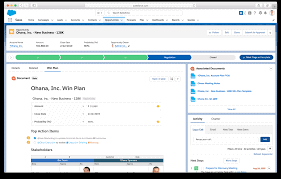
Quip is the productivity platform from Salesforce that makes it possible for businesses to collaborate, enabling contemporary collaboration easily and securely on any device. For the most security-conscious businesses, its cutting-edge security features help foster trust, transparency, and compliance. Quip is a suite of collaborative productivity software that enables teams of users to create and modify spreadsheets and documents together, typically for professional purposes. This is another dropbox alternative.
Pros & Cons of Quip
Pros:
- Easy to assemble
- Simple to use
- Free version is accessible
- Facilitated via Zapier
- Combines collaborative document production and team messaging
- Mobile-optimized
- Comprehensive communication tools
- Simple information access
Cons:
- No team schedule
- The interface might be more advanced.
- Lack of rich marking tools
- Merely a few integrations
- There are no clear storage space restrictions for free accounts.
Quip Price Schedules:
The annual fee for the Quip beginning is $10/user/month. The annual fee for the Quip Plus plan is $25/user/month. The monthly cost for the Salesforce Anywhere Advanced plan is $100 per user when paid for yearly.
Understanding Dropbox’s Fundamental Limitations
We must first examine the platform’s limits in order to properly understand the need to investigate superior Dropbox alternatives. Here are Dropbox’s primary restrictions:
- The storage space available to free users is constrained.
- Expensive pricing in comparison to its rivals.
- The platform’s file and folder organisation is cumbersome.
- User interface that is clumsy.
- Using the platform is difficult.
- Major obstacles to content exchange.
- Too many tools result in clutter and overcomplication.
Examining Dropbox’s Pricing Options
Depending on how much storage you want to utilise and how many devices you want to share, Dropbox price choices change. Therefore, let’s examine each of them separately:
- $9.99/month for the Plus Plan
Family Plan costs $16.99 per month.
- $16.58 per month for the Professional Plan
- Standard Plan: $12.50 per month per user
- Advanced Plan: $20 per month per user
Conclusion: Recognizing the Need For Finding Dropbox Alternatives
One of the most well-known suppliers of cloud storage is Dropbox. It is helpful for people that need to view their data from any device and includes a lot of functions.
Despite its widespread use, Dropbox has rivals that may be superior depending on the situation. A good illustration is Google Drive, which offers comparable services without charging a monthly subscription charge.
In conclusion, even if Dropbox is a trustworthy service with great functionality and dependability, some of its rivals offer features that are comparable to or even superior.
FAQs
What Alternatives Exist to Dropbox?
While Dropbox is excellent for file sharing and synchronisation, there are other options that can be utilised in its place. Google Drive, which provides capabilities comparable to those of Dropbox, is one such substitute. Microsoft OneDrive is another option, offering features similar to those of Dropbox while also enabling file sharing between Microsoft users.
Are There Free Dropbox Alternatives?
The greatest Dropbox substitute is Google Drive, which provides free cloud storage. It offers 1 TB of free storage space and an extra 15 GB of free storage space per month. Additionally, it has a robust search option that makes it easy to find your data as well as automated photo backup.
What Is the Best Dropbox Alternative?
Google Drive is one of the greatest Dropbox substitutes. It provides 15GB of backup space together with 1TB of free storage. Microsoft OneDrive is another excellent alternative. It offers unlimited storage for $1 per month or $10 per year, plus an extra 5GB when you sign up for Office 365.
Is There a Cheaper Dropbox Alternative?
Google Drive is the top Dropbox substitute. Every new user account receives 5GB of free storage space from this service, and there is also a monthly subscription option with prices ranging from $1.99 for 100GB of storage space to $9.99 for 1TB.
